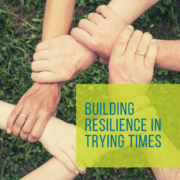Summer Writing For Your Middle/High Schooler
The summer slide does not only affect elementary schoolers; middle and high schoolers are just as susceptible to this loss of knowledge and academic skills over the summer months. Just because they have been in school longer and have received more instruction and practice does not mean that older students are going to be able to hold onto all of the knowledge that they have acquired during the school year. Without practice, even high–achieving students can regress during months of down time. Especially with regard to writing, a skill that needs to be cultivated, students may find themselves a little rusty when they return to the classroom after the summer. To avoid the pitfall that is the summer slide, parents can encourage different practices to help students keep their writing minds sharp, while still enjoying all that summer has to offer.
Practices to Consider
Parents and educators can use student interest to spur both creative and academic writing outside of school.
- Encourage your middle schooler to start a daily or weekly blog. They can write about any of their interests or hobbies—cooking, skiing, fashion, hiking, video games, outdoor adventures, etc. The options are endless. An important precaution, however, is to ensure that your child’s blog is private or protected by certain privacy settings that only allow specific people to access the site.
- Practice letter writing as both a leisurely activity and a form of correspondence for trips, vacations, and/or sleepaway camps. With travel plans as a likely part of the summer, what better way to practice different forms of writing than by using stationery, postcards, or email? If your child is away at camp or on a vacation with a friend’s family, ask for the address so that you can initiate the written correspondence. Mention in your letter that you would be thrilled to hear back from them. Ask specific questions about the time apart, especially if your child is reluctant to write. If possible, include a roll of stamps in the suitcase so that all your child has to do is write the letter or postcard and drop it in the mail.
- Create a “favorite quotes notebook” where family members share the responsibility of finding interesting quotes on certain days of the week. Pass around the notebook, allowing others to reflect on and comment about the new quote. Keep the responses free-flowing and as brief or lengthy as people would like—the point is to encourage inquiry, reflection, and writing, not to discourage by imposing strict expectations or rigid standards.
- Use social media to engage your child in more than just selfies. While on vacation, take photos of experiences, landmarks, activities, and anything else that you encounter. Then, ask your child to comment on the photo or experience. What will they remember most about this captured moment?
Practice “pit/peak” journaling/writing after a vacation or new experience. Sometimes called “rose/thorn,” the instructions for this brief journal entry is simple—independently reflect on your favorite or best memory from the trip and your worst or least favorite aspect of the experience. The response should be honest and reflective, but doesn’t have to be shared. The point is to get your child in the habit of capturing considerations on paper in an organized fashion.







